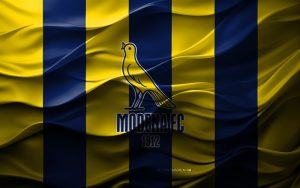Didier Deschamps: The Journey to World Cup Glory

Didier Deschamps: The Journey to World Cup Glory
Didier Deschamps stands as a symbol of resilience and tactical brilliance in football. From a legendary player to an exceptional coach, his journey reflects dedication and a deep love for the game. Under his guidance, France reached historic heights, including a World Cup triumph. This article delves into Deschamps’ coaching philosophy, innovative tactics, and enduring impact on French football, while platforms like Socolive TV showcase his legacy and influence beyond the pitch.
The Coaching Philosophy of Didier Deschamps
Didier Deschamps’ coaching philosophy is rooted in pragmatism, discipline, and adaptability. Unlike coaches who rely heavily on flamboyant tactics or star power, Deschamps emphasizes team harmony, mental resilience, and a flexible tactical approach. He believes in building a cohesive unit that can adapt seamlessly to various opponents and match situations, often prioritizing defensive solidity and quick transitions. His emphasis on collective effort over individual brilliance underscores his understanding that football is a team sport where discipline and strategy pave the way to success.
A significant aspect of his broader coaching philosophy is fostering mental strength and belief within his squad. Deschamps is known for his meticulous preparation and attention to detail, instilling confidence in players while maintaining a calm, focused environment. This approach has consistently enabled his teams to perform under pressure, leveraging their collective strengths rather than relying solely on star players. His leadership style combines tactical discipline with motivational skills, creating a resilient culture that continually strives for excellence.
Didier Deschamps’ Journey to World Cup Glory
Didier Deschamps’ journey to winning the World Cup is a compelling tale of perseverance, evolution, and tactical mastery. Starting as a talented midfielder for France during the 1990s, he developed an understanding of game dynamics from a player’s perspective, which later enriched his coaching mindset. Transitioning into management, he initially gained experience with club teams before taking on the role of French national coach in 2012. His vision was clear: create a balanced team capable of competing at the highest level in a historically competitive environment.
His crowning achievement came in 2018 when France triumphed in Russia, a victory that solidified his reputation as one of the best coaches in world football. Under his guidance, France exhibited tactical discipline, youthful exuberance, and unwavering confidence. His journey was marked by strategic squad selections, resilience in adversity, and adapting to the evolving landscape of international football. The victory was not merely about winning a trophy; it epitomized Deschamps’ capacity to unify a diverse squad and lead them to glory, cementing his legacy as a legendary figure in football history.
Tactical Innovations Under Didier Deschamps
While often perceived as pragmatic and disciplined, Didier Deschamps has also demonstrated tactical flexibility and innovative thinking. His ability to adapt formations mid-game and modify team strategies based on opponent analysis is one of his hallmarks. For example, he effectively employed a 4-3-3 setup in the 2018 World Cup to maximize offensive potential while maintaining defensive stability. He also adapts his approach to exploit opponents’ weaknesses, often employing a disciplined pressing system that disrupts the opponent’s rhythm and creates counter-attacking opportunities.
Deschamps’ tactical approach also emphasizes the importance of versatile players capable of multiple roles. His teams often feature players with tactical intelligence, capable of shifting positions and adjusting to game situations seamlessly. This fluidity allows France to switch between defensive and offensive modes effortlessly. These tactical innovations under his leadership have helped France dominate major tournaments by combining defensive resilience with quick, attacking transitions—a testament to his forward-thinking approach and understanding of modern football dynamics.
Key Players Influenced by Didier Deschamps
Many talented players have thrived under Didier Deschamps’ guidance, benefiting from his emphasis on team cohesion and tactical discipline. Stars like Kylian Mbappé, Antoine Griezmann, and Paul Pogba have elevated their performances after periods of mentorship from Deschamps, gaining confidence and tactical awareness. His talent for identifying the potential in young players and integrating them into a cohesive system has been crucial in France’s recent successes on the international stage.
Moreover, Deschamps encourages a sense of responsibility and leadership among his players, often forming core groups of influential figures within the squad. His coaching has helped players develop resilience, tactical intelligence, and composure under pressure. These players, inspired and guided by Deschamps, have not only contributed individual brilliance to the French team but also exemplified his holistic approach to player development. His influence on their careers underlines his impact as a mentor and strategist in shaping world-class talent.
Didier Deschamps: A Legacy in French Football
Didier Deschamps’ legacy extends beyond just titles and victories; it embodies a philosophy of perseverance, adaptability, and leadership. His success bridges the gap between France’s glorious football history and its modern football identity, inspiring current and future generations. His role as both player and coach has positioned him as a central figure in French football history, often drawing comparisons to legendary compatriots who have shaped the sport’s landscape in France.
Beyond trophies, Deschamps’ legacy is reflected in the character and resilience of his teams, his tactical ingenuity, and his unwavering commitment to excellence. His leadership has redefined what it means to be a coach in international football, demonstrating the importance of mental strength, adaptability, and humility. As the architect of France’s recent football resurgence, his influence will resonate for decades, inspiring young coaches and players alike to pursue greatness with integrity and resilience.
Challenges Faced by Didier Deschamps as National Coach
Leading a national team like France comes with numerous challenges: managing egos, balancing experienced veterans with youthful talent, and maintaining a consistent winning mentality. Didier Deschamps faced doubts early in his tenure, especially after narrowly missing the 2014 World Cup and managing the transition of a squad built on stars. His ability to unify diverse personalities and reconcile individual ambitions with team goals was tested repeatedly, requiring persistent diplomacy and strategic clarity.
He also had to adapt to external pressures, such as media scrutiny and expectations for continued success. Additionally, international tournaments demand a delicate balance of tactical flexibility and mental resilience; managing injuries, form fluctuations, and team dynamics posed ongoing hurdles. Deschamps’ capacity to navigate these challenges through calm leadership, tactical innovation, and fostering team unity underscores his resilience and strategic finesse, making his victories even more commendable.







